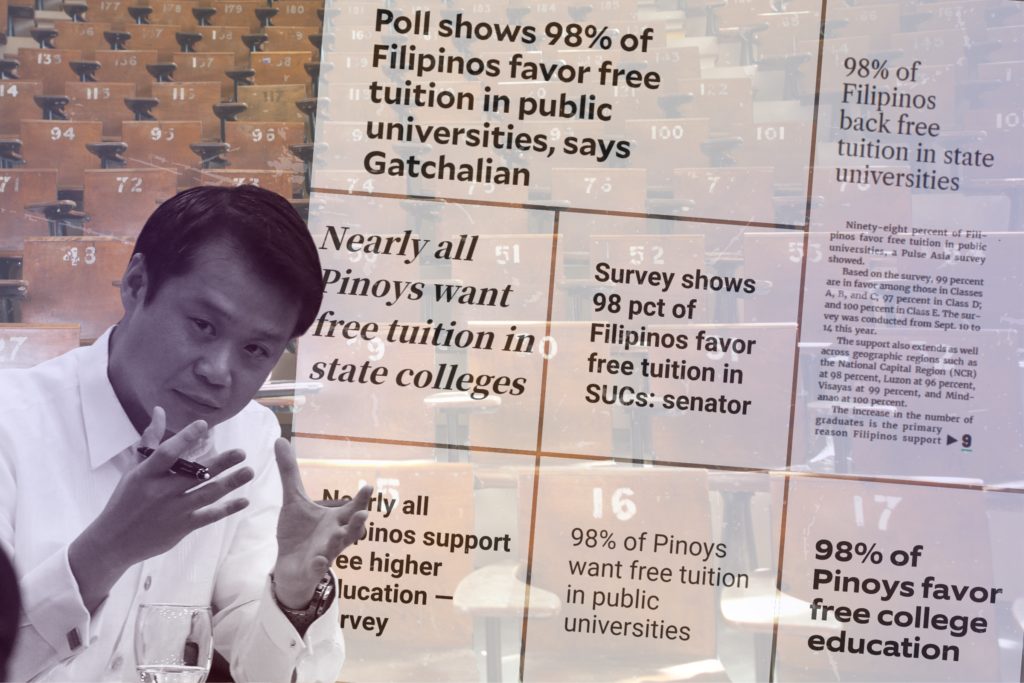Public approval for free tuition is not news; Poor lead distracts from real story

JEERS TO the news outfits that used survey results showing overwhelming public support for free tertiary education as its lead, calling attention to something that is hardly news. The report buried in the story the more relevant problem that government does not have enough funds to support R.A.10931 providing for “universal access” to higher education, passed during the Duterte administration.
On October 24 and 25, Philippine Daily Inquirer, Manila Standard, Manila Bulletin, Malaya, Philstar.com, Inquirer.net and news.ABS-CBN.com all headlined and reported that a Pulse Asia survey commissioned by Senator Sherwin Gatchalian found 98 percent of Filipinos approve of tuition-free education in state colleges and universities. Reports went on to list the reasons: tuition-free study produces more college graduates, improvement of students’ skills, the responsibility of the State to provide free education, and savings in personal finances, among others. Stressing the obvious, all further added that only one percent of the respondents said they were “not in favor” of free tuition. Media seemed eager to do a puff piece instead of probing the failure of legislation.
The reports did not say why Gatchalian, chair of the Senate Committee on Basic Education, commissioned the survey. Except for Malaya and Manila Standard, the reports noted that Finance Secretary Benjamin Diokno had expressed concern even in August that the free tuition law was “unsustainable,” and that it “consumes a lot of funds” without discussing these points further. The news accounts mentioned the current budget cuts for education, citing Gatchalian’s statement promising that he would work to address the deficiencies.
Gatchalian clearly used the survey to argue for more funding. But in taking this angle, journalists made it about him, rather than the substantive matter of Congress passing laws that government has no capacity to fund. The real story should not have focused on Gatchalian who has merely announced that he would do something about it.
Media could have probed more fully why legislators did not discuss the viability of the law when they passed it. What is the point after all of promising a benefit that cannot be delivered?
Because Congress has yet to pass the national budget, the story would have done better to reveal what other lawmakers had to say about budget cuts for SUCs and what could be done about it. Leading this story with the commissioned survey highlighted one politician’s posturing, making his individual stand the focus of the report rather than larger failure of Congress.
At best, the commissioned survey is a small footnote in the narrative of Filipino students’ access to higher education. Making the survey the main story keeps the media discourse about the issues of higher education at the shallow level of popular approval.
Leave a Reply